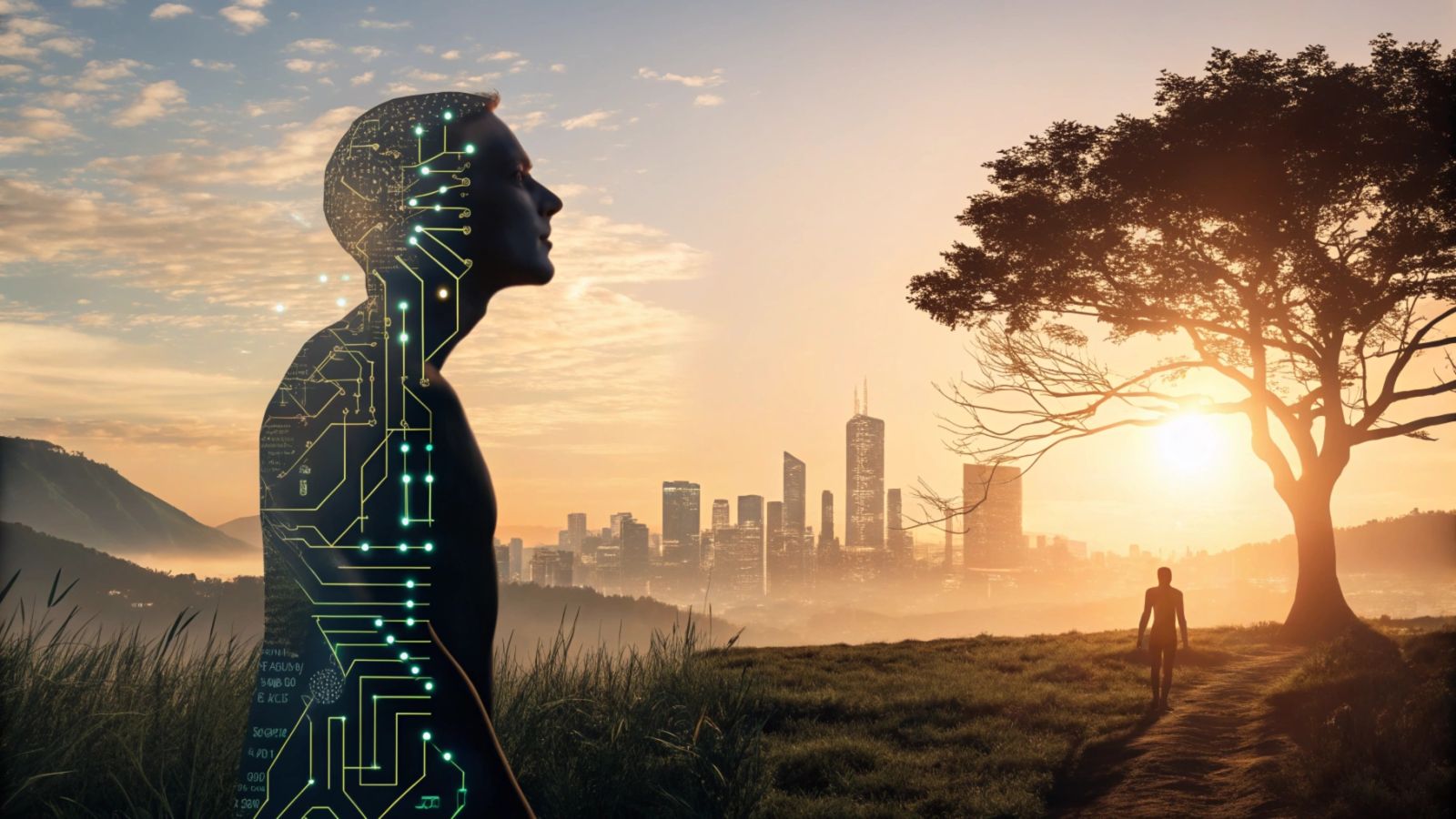What impacts will AI have on human evolution? 🧠
Published by Cédric,
Article author: Cédric DEPOND
Source: The Quarterly Review of Biology
Other Languages: FR, DE, ES, PT
Article author: Cédric DEPOND
Source: The Quarterly Review of Biology
Other Languages: FR, DE, ES, PT
Follow us on Google News (click on ☆)

AI, a beneficial mutualism for our brain?
AI is already transforming the way we think and interact. From voice assistants to recommendation algorithms, it is altering our cognitive habits. According to a study published in The Quarterly Review of Biology, AI could act as a mutualism, relieving our memory and allowing us to focus on more complex tasks.
This outsourcing of cognitive functions could lead to an evolution towards a smaller but more specialized brain, optimized for social and creative skills. For example, better energy efficiency of the brain would allow the organism to devote more resources to other vital functions, such as the immune system or reproduction. Moreover, a smaller brain could facilitate childbirth, reducing risks for both mother and child.
The risks of a parasitic dependence on AI
However, AI could also become parasitic, capturing our attention and reducing our real social interactions. Social networks, for instance, already exploit our psychological vulnerabilities, affecting our well-being and relationships. If this trend intensifies, AI could weaken essential human traits such as trust and intimacy.
Increased dependence on technology could also lead to a loss of cognitive autonomy. By delegating essential tasks to AI, we risk seeing some of our mental capacities atrophy, while becoming more vulnerable to algorithmic manipulations.
AI and social evolution: towards a more solitary humanity?
AI could also influence our social evolution. Virtual relationships with artificial intelligences, such as chatbots, could alter the way we form bonds. If these interactions become predominant, they could reduce our need for human companionship, profoundly transforming our society.
For example, "virtual friend" applications could replace real friendships, while recommendation algorithms could limit our exposure to ideas or people different from us. This evolution could lead to a society less emotionally connected, where human relationships lose depth.
An evolution with contrasting consequences
Thus, AI could redefine our biological and social evolution, with both beneficial and concerning consequences. On one hand, it could optimize our brain and improve our health. On the other hand, it risks making us more dependent and less autonomous, while weakening our social bonds.
As we increasingly integrate this technology into our lives, it is crucial to reflect on its long-term impacts on what makes us human. The balance between technological progress and the preservation of our humanity remains a major question for future generations.